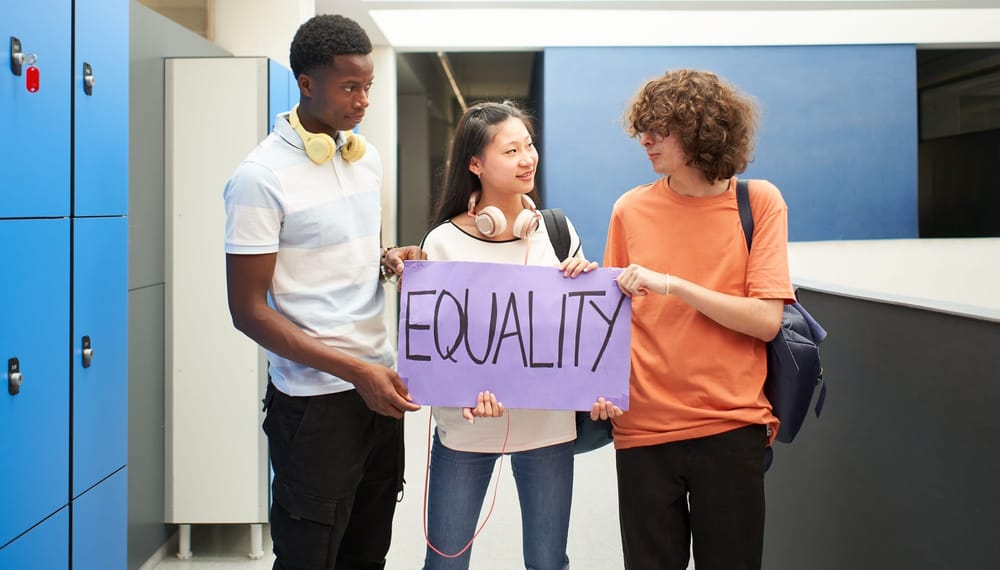The U.S. Supreme Court has a storied history that spans centuries, and throughout this time, its justices have not only been responsible for interpreting the law, but also for crafting some of the most eloquent legal prose in American history. These writings stand not just as legal guidance, but as literature that reflects the broader societal issues and conflicts of their times. In this piece, we delve into eight of the most elegantly written Supreme Court opinions and the justices behind them.
Click the link on the case names to further explore on Etalia.ai.
Marbury v. Madison (1803) - Chief Justice John Marshall
"It is emphatically the province and duty of the Judicial Department to say what the law is."
This case established the principle of judicial review, giving the Supreme Court the authority to declare laws unconstitutional. Marshall’s writing, clear and precise, set the foundation for the court's role in the American system of government.
Brown v. Board of Education (1954) - Chief Justice Earl Warren
"In the field of public education, the doctrine of 'separate but equal' has no place."
This unanimous decision declared racial segregation in public schools unconstitutional. Warren's eloquent and forceful writing helped to catalyze the civil rights movement.
Loving v. Virginia (1967) - Chief Justice Earl Warren
"Under our Constitution, the freedom to marry or not marry, a person of another race resides with the individual, and cannot be infringed by the State."
Warren championed individual rights and freedoms, and in Loving, he clearly articulated the unconstitutionality of miscegenation laws.
Tinker v. Des Moines (1969) - Justice Abe Fortas
"It can hardly be argued that either students or teachers shed their constitutional rights to freedom of speech or expression at the schoolhouse gate."
With these words, Fortas upheld the rights of students to express their views, so long as it did not disrupt the educational process.
Olmstead v. United States (1928) - Justice Louis Brandeis (dissent)
"The makers of our Constitution... sought to protect Americans in their beliefs, their thoughts, their emotions, and their sensations. They conferred, as against the government, the right to be let alone—the most comprehensive of rights and the right most valued by civilized men."
Though in the minority, Brandeis's stirring defense of privacy set the tone for future discussions and protections of the right.
Regents of the University of California v. Bakke (1978) - Justice Thurgood Marshall (concurring in part and dissenting in part)
"The position of the Negro today in America is the tragic but inevitable consequence of centuries of unequal treatment. Measured by any benchmark of comfort or achievement, meaningful equality remains a distant dream for the Negro."
In this case, the Supreme Court grappled with the constitutionality of affirmative action. While the Court upheld the use of race as one factor among many in college admissions, it struck down racial quotas. Marshall's opinion provided historical context to underscore the continuing impact of racial discrimination and the need for measures like affirmative action.
Texas v. Johnson (1989) - Justice William Brennan
"If there is a bedrock principle underlying the First Amendment, it is that the government may not prohibit the expression of an idea simply because society finds the idea itself offensive or disagreeable."
Brennan’s defense of free expression, even when it challenges societal norms, is a testament to the breadth and depth of the First Amendment.
Shelby County v. Holder (2013) - Justice Ruth Bader Ginsburg (dissent)
"Throwing out preclearance when it has worked and is continuing to work to stop discriminatory changes is like throwing away your umbrella in a rainstorm because you are not getting wet."
In this case, the majority of the Court decided to strike down a key provision of the Voting Rights Act. Ginsburg's poetic dissent argued that the law was still necessary to protect minority voting rights. Her analogy emphasized the premature nature of the Court's decision, asserting that just because something is working to prevent an injustice doesn't mean that the threat of that injustice has been fully eradicated.
Obergefell v. Hodges (2015) - Justice Anthony Kennedy
"No union is more profound than marriage, for it embodies the highest ideals of love, fidelity, devotion, sacrifice, and family."
Kennedy's words beautifully encapsulate the essence of marriage, and by extension, why it should be available to all, regardless of gender or sexuality.
The U.S. Supreme Court, with its landmark decisions and the masterful writings of its justices, serves not only as a bastion of justice but also as an archive of eloquent prose. These opinions reflect the evolving values and beliefs of American society, and the justices' words serve as a powerful reminder of the ideals upon which the nation was built.








